In the series “Iran and Russia”, IranWire studies the history of relations between the two countries. The first article examined what Ayatollah Khamenei took from the collapse of Soviet Union and how these “learned lessons” shaped his rule. In this article we explore the mystifying role played by Russia in the Islamic Republic’s nuclear program — past, present and future.
***
In one of the last rounds of ministerial-level nuclear negotiations between Iran and the P5+1, negotiators believed an agreement was close at hand. Russian Foreign Minister Sergey Lavrov had brought a bottle of champagne to the meeting room. But disagreements then arose, and the talks broke off once again. Despite this, Lavrov was still poised to open the champagne bottle. The American Deputy Secretary of State warned him: “Javad is still in the room.”
In celebratory pictures taken after the JCPOA was finally agreed on, Iran’s then-Foreign Minister Mohammad Javad Zarif and all the other foreign ministers are present – except for Lavrov, who had left Vienna for another meeting. This minor snub aside, Moscow was pleased with the lifting of international sanctions against the Islamic Republic. During the negotiations, Russian Deputy Foreign Minister Sergey Ryabkov had told the Iranians that once sanctions were lifted, Russia would deliver the S-300 missile defense system to Iran.
According to Zarif in his recent five-volume nuclear treatise, The Sealed Secret, Ryabkov had said the S-300 surface-to-air missile system was a defensive one and, as such, would not be subject to the arms embargo against the Islamic Republic. He told Zarif that Russia would not announce this decision before the nuclear accords were reached, and would deny it if the Iranians made it public before time.
Moscow was also hoping that once sanctions were lifted it could expand its nuclear activities in Iran, including the expansion of Bushehr Nuclear Power Plant. Construction of the plant had started in 1975 by German companies but came to a halt with the 1979 Islamic Revolution. During the negotiations, Zarif had pointedly told his Russian and Chinese counterparts that Iran wanted to expand its cooperation with Asian countries such as Russia and China, and did not want to limit its relations to Europe.
At Twice the Cost
In the first decade of the Islamic Republic and in a contract that initially remained secret, Russia replaced Germany in the running to complete the unfinished Bushehr facility – with a contract worth twice the original. It was signed in 1995, after China stopped its nuclear cooperation with Iran under pressure from the administration of then-US President Bill Clinton. Earlier, China had secretly provided Iran with the yellowcake, a concentrate used in uranium enrichment, and had agreed to help Iran setting up enrichment facilities in Isfahan.
The contract was signed during the presidency of Akbar Hashemi Rafsanjani, and while Reza Amrollahi was the president of Iran’s Atomic Energy Organization. It was a golden opportunity for former employees of Russia’s Rosatom State Nuclear Energy Corporation who had lost their jobs after the Chernobyl nuclear disaster in 1986 and the collapse of the Soviet Union in 1991.
It has been reported that as many as 3,000 Russian technicians and specialists were working at Bushehr Nuclear Power Plant in the late 1990s, receiving salaries of between $3,000 and $20,000 from Iran’s Atomic Energy Organization. The role played by Russians in Iran’s nuclear program was guaranteed when, in March 2001, President Mohammad Khatami visited Moscow and signed a 20-year cooperation agreement with Russian President Vladimir Putin.
As part of work on the plant, the Russians practically took over a segment of the Persian Gulf port city of Bushehr: so much so that that for quite some time Google Maps identified the area as the “Russians’ Coast”. In December 2012, towards the end of Mahmoud Ahmadinejad’s presidency, Mashregh News reported that according to a Bushehr MP, Russian women working on the site were paid extra to wear hijab.
Gholam Reza Aghazadeh, head of Iran’s Atomic Energy Organization under Ahmadinejad, said before his resignation in 2009 that the Islamic Republic could have bought several modern nuclear power plants from Europe with the same amount of money it had paid the Russians. He said Russia was supplying nuclear fuel for the Bushehr plant as per the agreement, but now wanted to be the sole supplier.
Russia Wanted to Be a Player
Before the JCPOA, Russia was one of the countries that supported international pressure on the Islamic Republic over its nuclear program. The Kremlin had not participated in the initial talks, but after the nuclear case against Iran was referred to the UN Security Council, Russia grabbed the opportunity to show its power as a member of the Security Council on par with the United States.
In some instances, Russian tried to moderate the Security Council’s resolutions related to Iran’s nuclear program. But with this achieved, it voted for in favor of them, supporting international sanctions against Iran. One of these was the June 2010 Resolution 1929, one of the most stringent of its kind in the history of the UN, which allowed other countries to inspect Iranian vessels and international flights if they were suspected of carrying prohibited cargo, and to detain or even confiscate them if such cargo is found.
Long before Iran’s nuclear case was referred to the Security Council, President Vladimir Putin had told Hassan Rouhani, then Iran’s senior nuclear negotiator, that Russia would support Iran but it would not stand against the United States. “We are not going to be a passenger on your ship”, Rouhani quoted Putin as having told him in his own book, Nuclear Diplomacy.
Russia stayed true to Putin’s promise. The Security Council’s handling of Iran’s nuclear case gave Moscow a chance to compensate for its absence in the early, failed nuclear negotiations between Iran and three European countries. This wish to reaffirm its standing as a superpower was quite apparent during talks with the P5+1.
Preserving a Monopoly
Although even the United States agreed to cooperate with Iran as a part of the nuclear deal and waived sanctions against the Arak Heavy Water Reactor so it could be renovated, Russia wanted a monopoly on all Iran’s nuclear projects, an extension of to the one it had on Bushehr. As such, even though Russian officials had earlier indicated that they would agree to the establishment of a nuclear fuel bank in Iran, they later sought to block it with everything in their power. The idea of a nuclear fuel bank run by a consortium including Russia had first been brought up in a meeting between the president of Rosatom and the head of Iran’s Atomic Energy Organization. But when Iran seriously tried to pursue the subject during the JCPOA talks, the Russians rejected it.
“We have a fundamental problem with bringing in Bushehr into P5+1 negotiations,” Russia’s senior nuclear negotiator told Zarif in Geneva in the summer of 2014. It was clear that Moscow, with its pre-existing monopoly on fuel for Bushehr Nuclear Power Plant, had no interest in a partner, not even the Islamic Republic itself. In the end, other countries complied with Russia’s red line and Rosatom kept its grip on Bushehr. Now, even though the Islamic Republic produces is own nuclear fuel at the Natanz nuclear facility, this fuel cannot be used at Bushehr power plant.
Even two years after President Trump unilaterally withdrew from the JCPOA — when Iran was not able to fulfil its financial commitments to Russia for buying fuel and Bushehr reactor was on the verge of shutdown because it was running out of fuel — the Islamic Republic was not allowed to use its own nuclear fuel at Bushehr.
Sometime after the JCPOA went into effect, Iran signed a new contract with Russia to expand and complete Bushehr power plant. In late summer of 2017, part of promises that Zarif had made to Russian nuclear negotiators for building eight new reactor units was fulfilled. During ceremonies to start the implementation of the contract, Eshagh Jahangiri, Rouhani’s First Vice President, said that “We shall cooperate with Russia as a friend. We shall build two new units with the Russian Federation with an investment of $8.5 billion.”
At yet another juncture while the text of the JCPOA was being written, Russia took another mystifying, unprecedented step that showed how far the production of nuclear fuel in other countries was a red line for Moscow. Russian negotiators insisted the following provision be inserted in the text of the agreement: “All provisions and measures contained in this JCPOA are only for the purpose of its implementation between E3/EU+3 and Iran and should not be considered as setting precedents for any other state.” At a private meeting with Deputy Russian Foreign Minister Sergei Ryabkov, Zarif objected to this provision. But it remained in the final version of the agreement.
Author of the “Snapback”
Russian actions with regard to Iran’s nuclear program and sanctions against the Islamic Republic did not stop here. The so-called “snapback” principle, meaning the automatic restoration of six Security Council resolutions enacted against Iran between 2006 and 2010 in the case of “significant non-performance”, found its way into Article 11 of the UN Security Council’s Resolution 2231 endorsing the JCPOA. It prompted harsh domestic criticism of Iran’s negotiating team. The architect of the snapback was Sergei Ryabkov.
In her 2018 memoir Not for the Faint of Heart, Wendy Sherman, former US Under Secretary of State and the top American nuclear negotiator, writes that the snapback’s inclusion was one of the last, most difficult issues of the nuclear negotiations, ultimately solved by Russian Foreign Minister Sergey Lavrov.
According to Sherman, the P5+1 countries wanted the sanctions to snap back if Iran were to violate the agreement. But the US didn’t want to go down the difficult route of getting Security Council approval. On the other hand, Russia didn’t want the mechanism for returning to sanctions to lie outside the Security Council, because that would mean forfeiting its power of veto.
So, Sherman writes, Lavrov helped find an innovative solution that gave every member of the P5+1 the power to ask for a vote by the Security Council to reimpose sanctions if that member believed Iran had violated the JCPOA.
The draft resolution submitted to the Security Council was formulated in a way that it allowed any permanent member of the Security Council to use its power of veto to bring back sanctions against Iran. This way, the right to veto was preserved but each member, including the US, could act unilaterally to reimpose sanctions. The Islamic Republic had no option but to accept Russia’s proposal.
The Shouting Match
Because of Iran’s general deference to Moscow, analysts have long believed the Islamic Republic’s holds Russia and China in a different esteem to Europe and the US. Javad Zarif tried to change this pattern at series of a behind-closed-doors meetings with representatives of Europe and US. One of these attempts took place on July 13, 2015, as the nuclear negotiations were drawing to a close.
Zarif had gone to then-US Secretary of State John Kerry’s room at the Palais Coburg hotel in Vienna to talk to him about the arms embargo on Iran. Lavrov and Federica Mogherini, the High Representative of the European Union for Foreign Affairs, were already in the room. The story of this meeting is recounted by both Kerry, in his 2018 memoir Every Day Is Extra, and Zarif in The Sealed Secret. The issue under discussion was how long the arms embargo against Iran was to last. The P5+1 wanted the embargo to stay in place for five years, with Zarif naturally against the idea.
Lavrov, who had been accused by the Russian media of ignoring Russian interests in his negotiations with Iran, was getting ready to leave Vienna for Uzbekistan. Kerry and Mogherini were trying to convince Lavrov to delay his departure for a few hours when Zarif entered the room. Immediately, Lavrov challenged Zarif, demanding to know: “Why don’t you accept the five years? You can be sure the Westerners aren’t going to offer you anything better. Have you talked to Tehran about the Americans’ proposal?”.
The Russian foreign minister then angrily told Zarif that he was wasting his time. He would depart now, he said, and be back three days later. In his book, Zarif writes that Lavrov spoke so loudly that Kerry and Mogherini were stunned into silence. Zarif chose to answer Lavrov in kind.
Kerry writes that, close to midnight, Lavrov snapped: “Javad! It seems you don’t have the authority to sign the contract. If this is the case, please tell us. You are wasting our time.”
Wendi Sherman asked the American delegation and Mogherini to leave the three foreign ministers alone together. Zarif then told Lavrov: “Sergey, in all the 20 years we have known each other, have I ever failed to deliver on my promises?”. Kerry writes that he told Zarif that he was sure “Sergey” had not meant to insult him, and asked him whether he could accept the agreement as it was written.
In the end, Zarif did accept the five-year continuation of the arms embargo. The JCPOA was thus finalized. Zarif writes that in that final session, Lavrov sat on the seat reserved for Russia to show his country’s place was among the other P5+1 countries, but the moment the meeting ended he left for the airport.
Perhaps Lavrov left before the ceremonial pictures to show his annoyance – or to show that Russia’s role in the negotiations had consolidated its mysterious role in the Islamic Republic’s nuclear program. Even when Donald Trump withdraw from the JCPOA, the US did not sanction activities at Bushehr Nuclear Power Plant. Indeed, it repeatedly exempted Russia from the sanctions against the Islamic Republic.
Despite this concession, it recently emerged that Russia had nonetheless halted work at Bushehr a full 22 months ago. It was yet another sign of Russia’s distorted role in the Ayatollah’s nuclear program, indicating that Moscow might pretend to be on Iran’s side but in fact, adheres to the norms set by the rest of the world.
Related Coverage:
Iran and Russia, Part I: What Khamenei Took From the Collapse of the Soviet Union
What's Going on With Russia and Bushehr Nuclear Power Plant?
Iranian Official: Moscow Won't Let Us Extract Gas From Our Territory
Nuclear Confrontation, Khamenei's Gift to Iran
Khamenei Appoints his Anti-JCPOA Relative as Iran’s New Nuclear Negotiator
Ayatollah Khamenei: Go Forth and Multiply!
The Future of Iran’s Caspian Sea Territory
The Tale Behind Putin’s Trip To Tehran
Lessons for Iranians from a Soviet Meltdown
A Little More East Than West: Iran and Russia
visit the accountability section
In this section of Iran Wire, you can contact the officials and launch your campaign for various problems




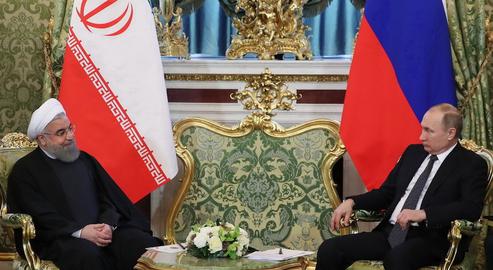
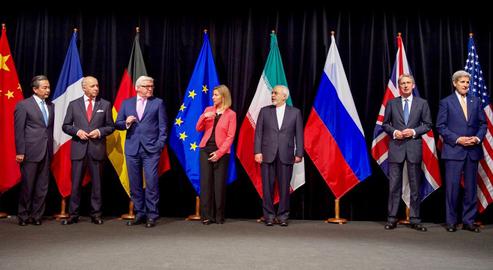
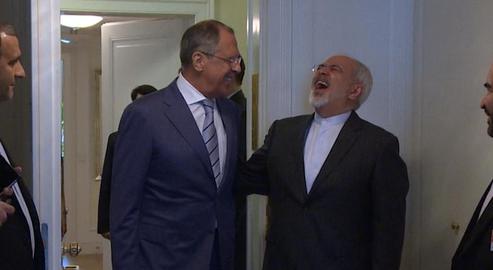
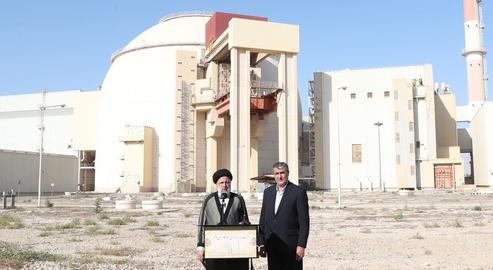



















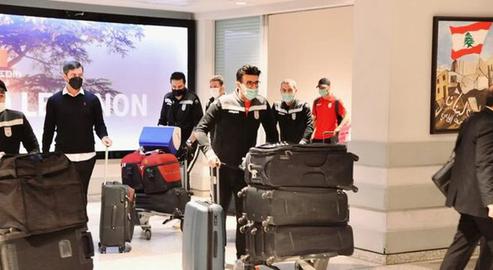
comments